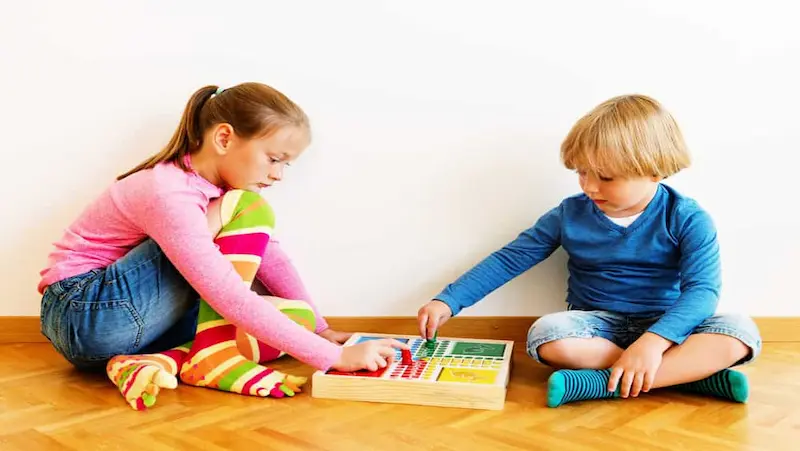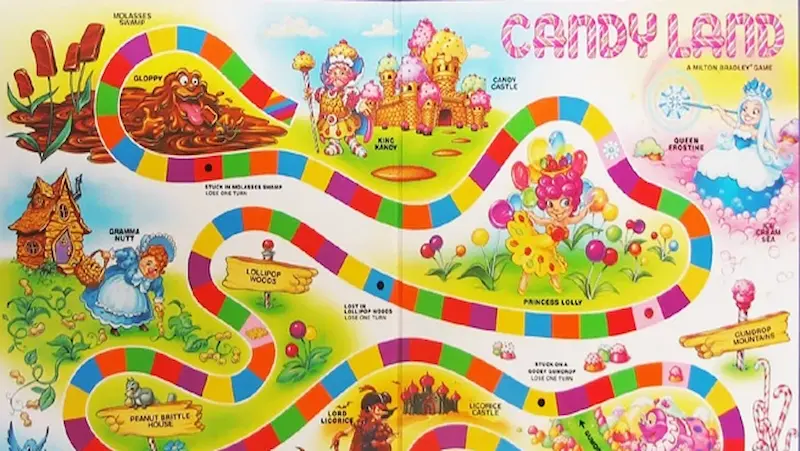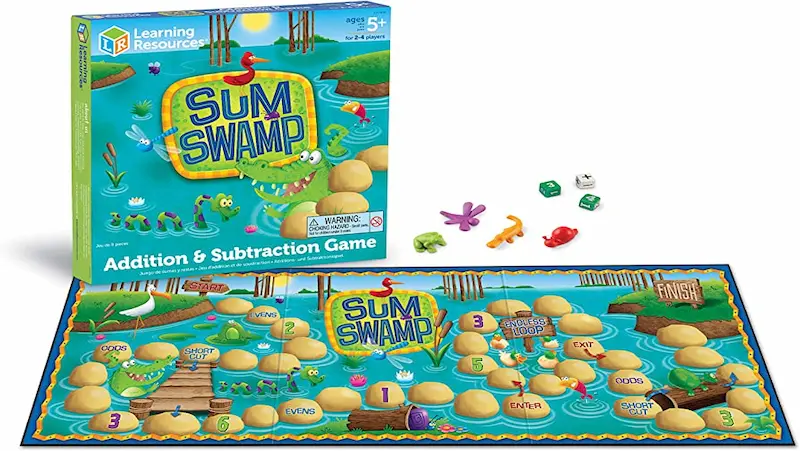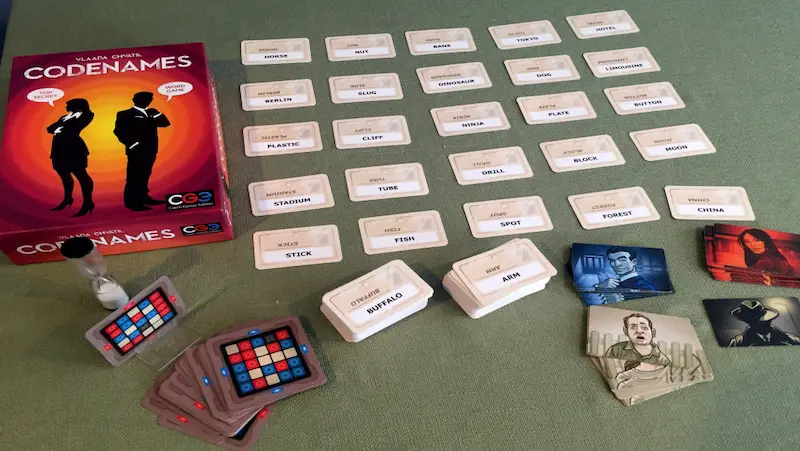Welcome to the world of board games, where fun and education come together! Board games have long been a beloved pastime for kids of all ages, providing a wonderful opportunity for family and friends to come together, engage in friendly competition, and create lasting memories.
In this guide, we will explore the best board games specifically designed for kids, offering a delightful mix of entertainment and learning. Whether you’re looking for games that enhance problem-solving skills, promote strategic thinking, encourage teamwork, or simply offer a good dose of laughter, we have you covered. Join us as we dive into a world of imagination, discovery, and endless fun with the best board games for kids to play of all ages!
Board games have long been a beloved pastime for people of all ages, providing hours of entertainment and fostering valuable social interactions. When it comes to children, these games take on an even greater significance.
Board games for kids not only offer enjoyable experiences but also play a crucial role in their development. From enhancing cognitive skills to teaching important life lessons, these games provide a myriad of benefits that go beyond mere amusement.
One of the key advantages of board games is their ability to promote cognitive development. These games often require players to make decisions, think critically, and analyze different possibilities.
Through the process of playing, children learn to strategize, weigh their options, and anticipate the consequences of their actions. These cognitive skills, honed through board games, lay a strong foundation for problem-solving and decision-making abilities that will benefit them in various aspects of life.
In addition to cognitive and social development, board games also contribute to the emotional well-being of children. They provide a safe space for kids to experience and regulate emotions such as joy, disappointment, and frustration.
Through both winning and losing, children learn about sportsmanship, resilience, and the importance of perseverance. These invaluable life lessons gained from board games help them develop a healthy mindset and emotional intelligence that will support their overall growth.
Table of contents
Benefits of Playing Board Games for Kids
In today’s digital age, where screens and gadgets dominate the entertainment landscape, it’s easy for kids to overlook the simple joy of playing board games. However, children’s games have been a staple of childhood for generations, and they continue to offer numerous benefits for children’s development.
From fostering social skills to enhancing critical thinking abilities, board games provide a unique and valuable learning experience. In this blog post, we will explore some of the benefits of playing board games for kids.

Social Interaction
Board games provide an excellent opportunity for children to interact with their peers, siblings, or parents. They learn essential social skills such as taking turns, sharing, and following rules. Board games often require teamwork, negotiation, and communication, allowing children to develop effective interpersonal skills that are vital in various aspects of life.
Critical Thinking and Problem-Solving
Many board games involve strategic thinking and problem-solving. As children play, they learn to analyze situations, make decisions, and anticipate the consequences of their actions. These games stimulate their cognitive abilities, improve their logical reasoning skills, and encourage them to think creatively.
Whether it’s planning the next move or adapting to unexpected changes in the game, children sharpen their critical thinking skills through the challenges presented in board games.
Concentration and Patience
Board games require children to focus and concentrate on the game at hand. They need to pay attention to details, remember rules, and stay engaged throughout the gameplay. By practicing these skills, children can enhance their ability to concentrate for extended periods, improving their attention spans and developing patience. Over time, they learn the value of perseverance and the rewards that come with it.
Mathematics and Logic
Many board games involve elements of mathematics and logic, making them a fun way to reinforce these subjects outside of the classroom. From counting spaces to calculating scores, children develop their numerical literacy while playing board games.
They learn concepts like probability, spatial reasoning, and basic arithmetic, all in a practical and enjoyable context. This hands-on approach can make abstract concepts more tangible and relatable for young learners.
Emotional Intelligence
Board games often evoke a range of emotions, from excitement and joy to disappointment and frustration. These emotional experiences provide valuable opportunities for children to develop emotional intelligence.
They learn to manage their emotions, cope with setbacks, and practice good sportsmanship. Playing board games also helps children understand empathy and develop a sense of fairness, as they learn to consider the feelings and perspectives of others.
Family Bonding
Board games offer an excellent way for families to bond and spend quality time together. Gathering around the table for a game creates an atmosphere of shared fun and laughter. It allows for meaningful conversations, strengthens relationships, and creates lasting memories.
Board games can also bridge generational gaps, as older family members can share their experiences and knowledge while playing alongside younger ones.
Popular Board Games for Kids
Board games have been a cherished pastime for generations, fostering social interaction, strategic thinking, and wholesome fun. With countless options available, it can be overwhelming to choose the right board games for kids.
That’s why we’ve compiled a list of 10 popular board games that are sure to keep your little ones entertained. From classic favorites to modern gems, these games offer a delightful blend of education and entertainment. So, gather the family around the table, roll the dice, and let the games begin!

Candy Land
Age Range: 3 and up | Number of Players: 2-4
Embark on a sweet adventure through the Candy Land board, filled with lollipop woods and gumdrop mountains. Perfect for preschoolers, this game teaches color recognition and counting while introducing the concept of taking turns.
Chutes and Ladders
Age Range: 3 and up | Number of Players: 2-4
Climb up ladders and slide down chutes in this classic game of ups and downs. Ideal for young children, Chutes and Ladders promote counting, number recognition, and good sportsmanship.
Uno
Age Range: 7 and up | Number of Players: 2-10
A fast-paced card games for kids loved by adults alike, Uno challenges players to match colors and numbers. It encourages strategic thinking, decision-making, and a dash of luck.
Guess Who?
Age Range: 6 and up | Number of Players: 2
Sharpen your deductive reasoning skills in Guess Who? Players take turns asking yes-or-no questions to figure out the mystery character chosen by their opponent. This game promotes critical thinking and observation.
Sequence for Kids
Age Range: 3-6 | Number of Players: 2-4
Sequence for Kids is a simplified version of the popular game Sequence. Players match animal cards to their corresponding pictures on the game board, aiming to get four in a row. It teaches young children pattern recognition and strategic planning.
Ticket to Ride: First Journey
Age Range: 6 and up | Number of Players: 2-4
Embark on a cross-country train adventure in Ticket to Ride: First Journey. Players collect train cards to claim routes and connect cities on the map. This game enhances spatial reasoning, strategy, and geography knowledge.
Labyrinth
Age Range: 7 and up | Number of Players: 2-4
In Labyrinth, players must navigate a shifting maze filled with hidden treasures. As they move the labyrinth’s walls, the paths change, requiring critical thinking and planning. This game fosters spatial awareness and problem-solving skills.
Rat-a-Tat Cat
Age Range: 6 and up | Number of Players: 2-6
Test your memory and strategy in Rat-a-Tat Cat. Players seek to have the lowest score by exchanging cards, remembering their values, and trying to collect low-scoring cats. This game enhances memory skills and logical thinking.
Codenames: Pictures
Age Range: 8 and up | Number of Players: 2-8+
Codenames: Pictures is a thrilling word-guessing game where players give one-word clues to identify multiple pictures on the table. It encourages teamwork, creativity, and word association skills.
Forbidden Island
Age Range: 10 and up | Number of Players: 2-4
In Forbidden Island, players work together as a team of adventurers to capture treasures on a sinking island before it disappears underwater. This cooperative game promotes collaboration, strategic planning, and decision-making.
Educational Board Games for Kids
Board games have long been a favorite pastime for families and friends, offering an opportunity to bond and engage in friendly competition. However, beyond their entertainment value, board games can also serve as powerful educational tools for children.
They can enhance important skills such as math, reading, and critical thinking in a fun and interactive way. In this article, we will explore some of the best educational games for kids that promote learning while keeping them thoroughly entertained.

Mathematically Mindful: “Sum Swamp”
“Sum Swamp” is an exciting math board game that helps young learners develop their basic addition and subtraction skills. Designed for children aged 5 and up, this game takes players on a journey through a swamp filled with math challenges.
By rolling the dice and navigating the game board, children practice mental math while encountering obstacles and solving math problems. With its colorful design and engaging gameplay, “Sum Swamp” makes learning math an enjoyable adventure.
Reading Adventures: “Zingo”
“Zingo” is a fast-paced word-building game that introduces children to early reading skills. Suitable for children aged 4 and above, this game combines the fun of bingo with basic word recognition. Each player has a Zingo card featuring words, and they race to fill their card with matching tiles as they are called out.
By associating words with visual representations, children enhance their vocabulary, word recognition, and reading fluency in an exciting and interactive way.
Strategy and Logic: “Settlers of Catan Junior”
“Settlers of Catan Junior” is a fantastic introduction to strategic thinking and resource management for children aged 6 and above. This simplified version of the popular board game is set on a tropical island, where players collect and trade resources to build pirate hideouts and ships.
Through negotiation, planning, and critical decision-making, children develop skills in problem-solving, strategic thinking, and resource allocation. “Settlers of Catan Junior” not only stimulates young minds but also encourages social interaction and cooperation.
Science Exploration: “Robot Turtles”
“Robot Turtles” is a board game that introduces young children (ages 4 and up) to the fundamentals of coding and computer programming for kids. With its cute turtle characters and colorful game board, this game transforms coding concepts into fun games for kids and an accessible experience.
Players use cards to navigate their turtle through a maze, learning about commands, loops, and functions along the way. “Robot Turtles” not only teaches coding principles but also fosters logical thinking and problem-solving skills.
Family-Friendly Board Games
In today’s digitally-driven world, it’s becoming increasingly rare to see families gathered around a table, engaging in face-to-face activities. However, board games provide the perfect opportunity to unplug technology and create lasting memories with loved ones.
These games offer a chance for both kids and adults to bond, laugh, and strategize together. So, let’s explore seven family-friendly board games that are suitable for all ages and can truly bring the whole family closer.

Ticket to Ride
Embark on an exciting railway adventure with Ticket to Ride. This award-winning board game challenges players to build train routes across various destinations. The gameplay is straightforward, making it accessible for younger children, while still providing strategic depth for adults. With its beautiful illustrations and interactive gameplay, Ticket to Ride offers endless fun for the entire family.
Codenames
Codenames is a brilliant word association game that tests players’ communication skills and deduction abilities. Divided into two teams, players take turns giving clues to their teammates to guess the correct words on a grid.
It’s a game that encourages collaboration, creativity, and friendly competition. Codenames is perfect for fostering teamwork and boosting vocabulary, making it a hit for both kids and adults.
Carcassonne
Transport your family to medieval France with Carcassonne, a tile-placement game that invites players to build cities, roads, and landscapes. This strategic game offers a balance between simplicity and depth, making it suitable for players of all ages.
The ever-changing board creates a sense of exploration and discovery, while the competitive element adds excitement and engagement for everyone involved.
Pandemic
While the theme might seem a bit too close to home, Pandemic is an enthralling cooperative board game that challenges players to work together to save humanity from deadly diseases.
Each player takes on a unique role with special abilities, requiring collaboration and strategic planning. Pandemic is a fantastic game for fostering teamwork, problem-solving, and critical thinking skills, all while providing an immersive and thrilling experience for the whole family.
Sushi Go
For a delightful and fast-paced card game, look no further than Sushi Go! With adorable sushi-themed illustrations, players aim to create the most delicious sushi combinations.
The game is simple to learn, making it ideal for younger children, yet it still requires strategic decision-making. Sushi Go! is an excellent choice for quick rounds of fun, laughter, and friendly competition.
Dixit
Dixit is a visually stunning storytelling game that sparks creativity and imagination. Each turn, players take on the role of the storyteller, using a beautifully illustrated card to give a clue or phrase. Other players then choose cards from their hands that best match the clue.
The game thrives on creativity and interpretation, encouraging players of all ages to think outside the box. Dixit is an enchanting game that brings the family together through shared storytelling and appreciation of art.
Catan
Catan, also known as Settlers of Catan, is a classic board game that has captivated families for years. Set on a fictional island, players compete to establish settlements, trade resources, and expand their territory.
Catan combines luck and strategy, creating an engaging and interactive experience for players of all ages. The game’s modular board ensures that each playthrough offers a unique and exciting challenge, keeping the whole family hooked for hours.
How to Choose the Best Board Games for Kids
Board games are not only a fun way to spend quality time with your kids but also provide numerous educational benefits. From improving cognitive skills to fostering social interactions, board games offer a well-rounded learning experience.
However, with so many options available, selecting the right board games for your kids can be a daunting task. In this article, we will provide you with tips and advice on how to choose the best board games for your kids, taking into consideration their interests, age, and skill level.

Consider their Interests
The first step in choosing the right board games for your kids is to consider their interests. Think about what topics or themes excite them. Are they fascinated by animals, science, fantasy, or history?
By aligning their interests with the game’s theme, you can enhance their engagement and enjoyment. Look for board games that incorporate their favorite characters or activities, as it will make the experience more captivating for them.
Age Appropriateness
Each board game comes with a recommended age range, which serves as a useful guideline. Consider the age of your children while selecting a board game. Younger kids might find it challenging to grasp complex rules or strategies, while older children might quickly lose interest in games designed for younger players.
Ensure the game’s complexity matches their age and cognitive abilities, providing an enjoyable and rewarding experience.
Skill Level
Assessing your child’s skill level is crucial when choosing board games. Some children might be quick learners, while others might require more time and practice. Look for games that offer varying difficulty levels or have adaptable gameplay.
This allows you to adjust the game’s complexity as your child develops their skills, providing a gradual learning curve.
Duration of Gameplay
Consider the duration of gameplay when selecting a board game for your kids. Younger children may prefer shorter games that can be completed within 15-30 minutes, while older kids might enjoy longer sessions.
Be mindful of their attention span and choose games that align with their ability to stay engaged throughout the gameplay. Finding a balance between enjoyment and duration is key to keeping their interest alive.
Cooperative vs. Competitive
Board games can be categorized into cooperative or competitive games. Cooperative games foster teamwork, collaboration, and problem-solving skills as players work together towards a common goal.
On the other hand, competitive games promote strategic thinking, decision-making, and healthy competition. Consider your child’s temperament and preferences when deciding between cooperative and competitive games, or even a mix of both.
Conclusion
In conclusion, the benefits of playing board games for kids are vast and diverse, making them an excellent addition to any family’s routine. By incorporating board games into their children’s lives, parents can foster numerous positive outcomes.
First and foremost, board games promote intellectual development. They enhance critical thinking, problem-solving skills, and strategic planning abilities. Kids learn to analyze situations, make decisions, and think ahead, all while having fun.
Board games also enhance memory, concentration, and focus, as players need to remember rules, track progress, and stay engaged throughout the game.
Board games also offer a break from technology and screen time. In a digital age where children are often immersed in electronic devices, board games provide a refreshing alternative. They offer a chance for kids to unplug, engage with physical components, and exercise their creativity.
Board games stimulate imagination and storytelling as players immerse themselves in unique game worlds and narratives.
Finally, playing board games together as a family creates a positive and nurturing environment. It strengthens family bonds, encourages quality time, and fosters a sense of belonging. Regular game nights become cherished traditions, offering an opportunity for parents and children to connect, laugh, and relax together.
Incorporating board games into your family’s routine is a simple yet powerful way to reap these benefits. Whether it’s a weekly game night or a spontaneous match, the positive impact on your children’s development and family dynamics is immeasurable.
So, gather around the table, roll the dice, and let the magic of board games bring joy, learning, and togetherness into your lives.
To get your hands on more such educational and free resources on coding for kids, robotics courses for kids, game development, etc., do check out the Brightchamps Page now!
Frequently Asked Questions
A1: Playing board games help develop critical thinking, problem-solving, and social skills while fostering creativity and imagination.
A2: For preschoolers, games like Candy Land and Chutes and Ladders are popular. For older kids, classics like Monopoly and Clue, or strategy games like Settlers of Catan and Ticket to Ride, are great options.
A3: Parents can engage kids by actively participating, creating a fun atmosphere, and allowing them to make decisions independently. Using variations, adding challenges, or incorporating storytelling can enhance the interactive experience.
A4: Yes, games like Chess, Scrabble, and Risk promote critical thinking and strategic planning. Cooperative games like Pandemic can encourage teamwork and communication skills.
A5: You can buy board games for kids online on platforms like Amazon or at local toy stores. Factors to consider when choosing the right game include age appropriateness, complexity, theme, player count, and reviews from other customers.


 We are an army of educators and passionate learners from BrightChamps family, committed to providing free learning resources to kids, parents & students.
We are an army of educators and passionate learners from BrightChamps family, committed to providing free learning resources to kids, parents & students.














